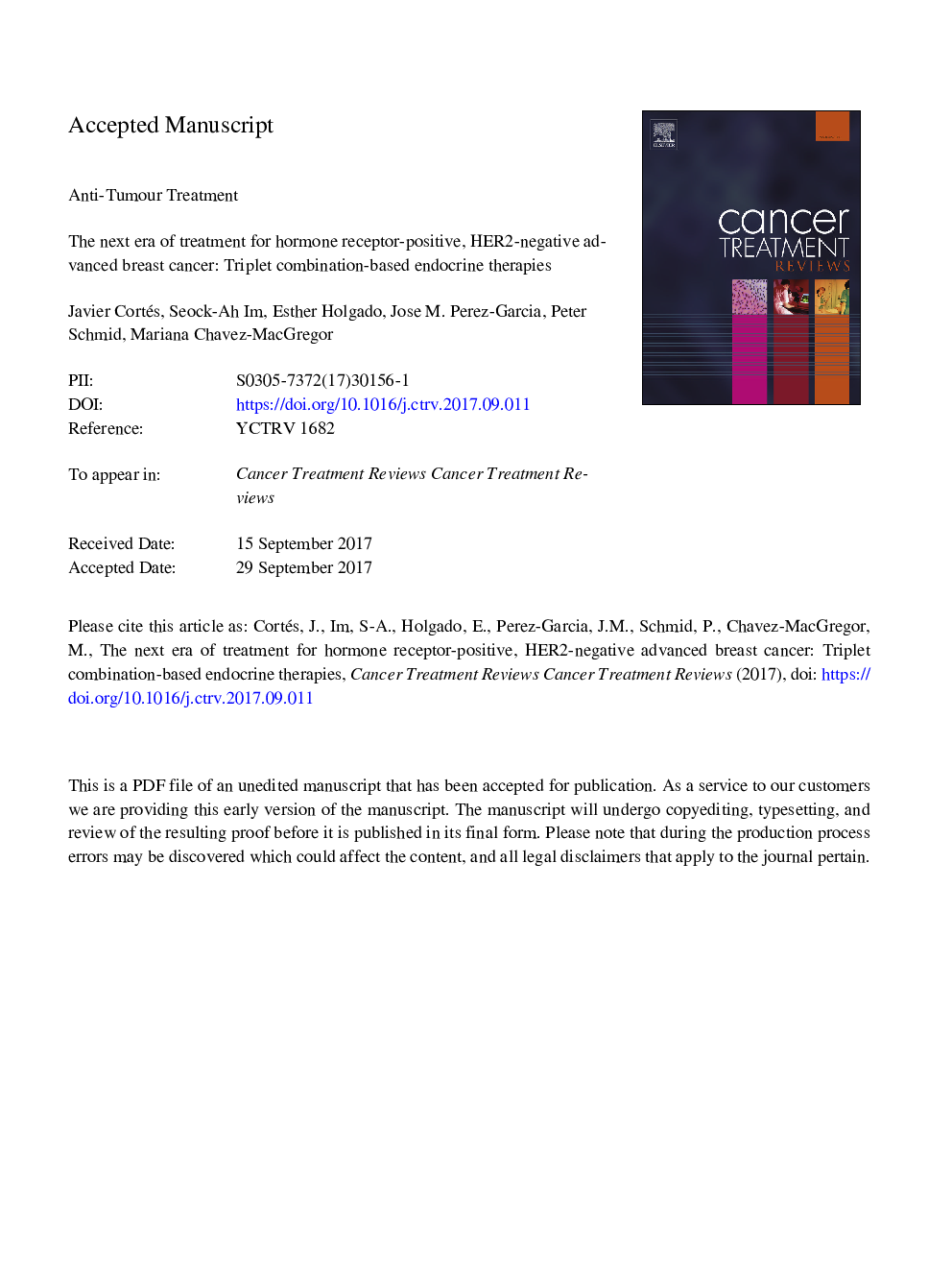| Article ID | Journal | Published Year | Pages | File Type |
|---|---|---|---|---|
| 8785943 | Cancer Treatment Reviews | 2017 | 22 Pages |
Abstract
Until recently, the standard of care for hormone receptor-positive (HR+) breast cancer was single-agent endocrine therapy, which aims to prevent estrogen receptor signaling. This therapeutic strategy has extended survival without the toxicity associated with chemotherapy, but primary endocrine therapy resistance is common, and secondary resistance develops over time. Adjunct downstream inhibition of the cyclin-dependent kinase (CDK)4/6 pathway, intended to delay and prevent endocrine therapy resistance, has further extended progression-free survival in patients receiving endocrine therapy; however, resistance still eventually develops in these patients. Addition of phosphatidylinositol-3 kinase (PI3K) or mammalian target of rapamycin (mTOR) inhibitors to combined CDK4/6 and endocrine inhibitor regimens may help prolong CDK4/6 inhibitor sensitivity. Early trials combining CDK4/6 inhibitors, PI3K or mTOR inhibitors, and endocrine therapy have shown encouraging signs of clinical activity. However, further research is needed to help understand the extent of treatment benefit from triplet therapy and where this strategy will fit in the treatment sequence for patients with HR+ breast cancer.
Related Topics
Health Sciences
Medicine and Dentistry
Oncology
Authors
Javier Cortés, Seock-Ah Im, Esther Holgado, Jose M. Perez-Garcia, Peter Schmid, Mariana Chavez-MacGregor,
